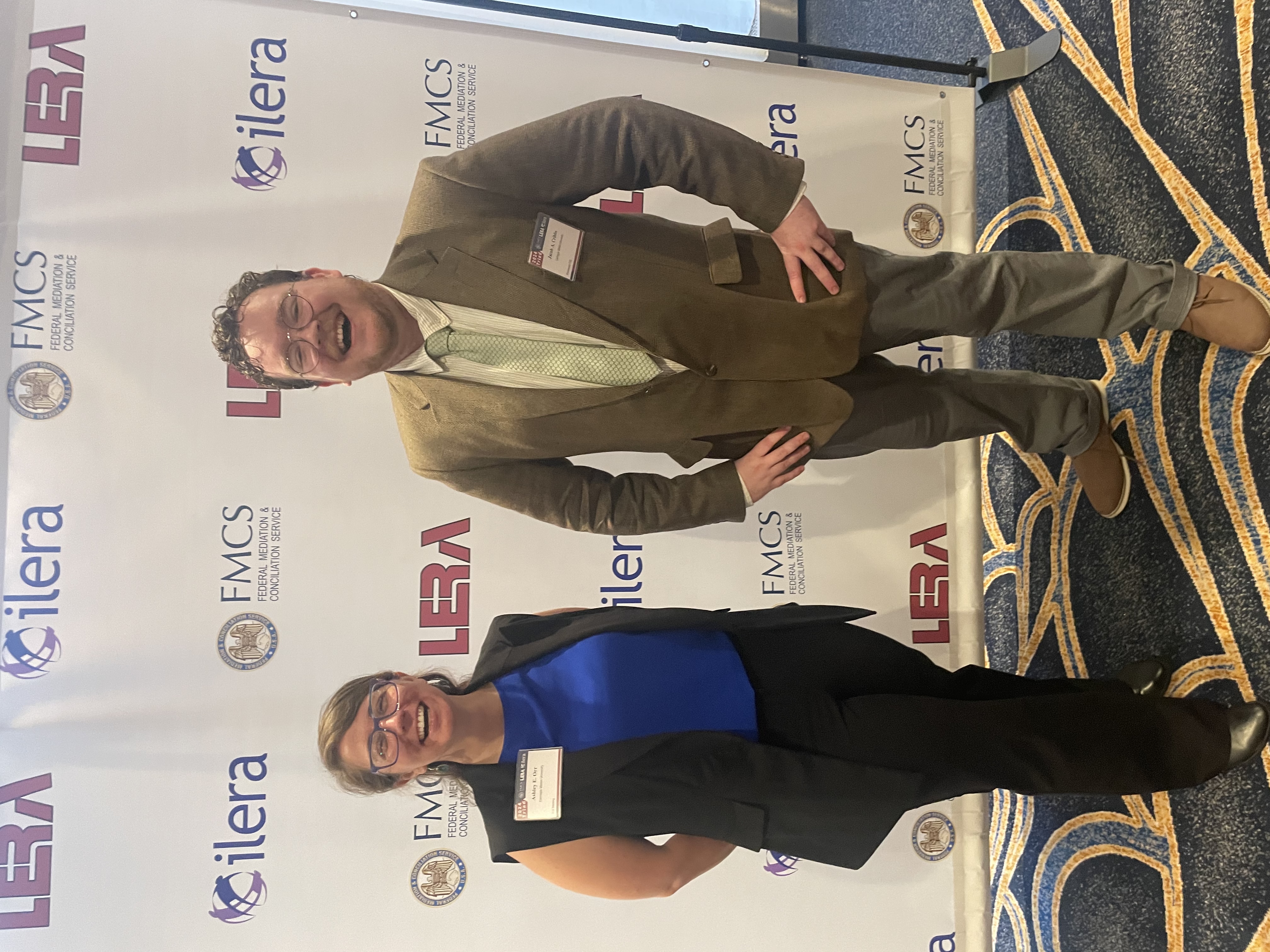Driving Positive Change through Community-Engaged Research
At the Block Center for Technology and Society, we are dedicated to fostering innovation and addressing societal challenges through cutting-edge research. Recently, we had the privilege of catching up with Ashley Orr and Jacob Cribbs to discuss their latest paper that they presented at the Labor Employment Relations Association Conference in New York. Read more about their successful conference presentation and how Block Center funding aided their research in our conversation below.
What advice would you give to other students or researchers seeking funding opportunities for projects aligned with similar initiatives?
As a student-researcher, you can learn a lot from local experts in your academic area through community-engaged research, where researchers and community groups co-create a project together. If you have an idea that fits the call for proposals, work with your advisor to submit it! For any Master’s level researchers, research is accessible to you too! Talk to each other and your PhD Student instructors or teaching assistants about your interests and consider applying for a research assistant role or funding to lead a project yourself!
In what ways do you believe your research has the potential to inform policy or drive positive change in your field or community?
We know that access to high paying jobs is not equal, and one solution is to address inequities in skills with community-based training programs. For those programs to have the greatest impact on those with the most growth potential, our research suggests that job trainers affirm to their trainees that they believe their trainees can all master the concepts with effort, use of support, and good strategies. This is the core of growth mindset teaching. Our research finds that it only takes 75 minutes for job trainers to orient the mindsets of job trainers towards growth, give them implementable steps to support a growth mindset in their trainees, and training program design. In this phase of the project, we study short term effects, however, we hope trainers continue to use growth affirming teaching and trainees experience longer term gains!
In what ways do you think your research aligns with the mission and values of the Block Center at Carnegie Mellon University?
Throughout our community engagement, we heard from partners that their trainees are hesitant about use and integration of emerging technologies like AI and robotics. While the phrase, “I am not a technology person,” may sound harmless– research in cognitive learning science suggests that that statement implies a fixed mindset, or the belief that you have to have some innate special characteristics to be successful in the new economy. Our project strongly rejects that view, affirming that with the right conditions anyone can learn to be more productive using technologies. We believe that aligns with the mission and vision of the Block Center and CMU.
Are there any collaborations or partnerships that have been crucial to the success of your research project?
Working with the Bidwell Training Center on the Northshore was crucial to our project success! Dr. Kimberly Rassau welcomed us to visit the training center, taught us about their current program design, and co-created the growth mindset training and survey assessment for their trainers with us. We also met and worked with Audra Pavloski and Gary Drent, who are the Bidwell leaders in their implementation.
Are there any podcasts or talks you've been listening to lately that you'd recommend to others interested in your area of research?
Huberman Lab Podcast, interview with David Yeager - “Stress is Enhancing Mindset”
Hidden Brain Podcast with Mary Murphy
We hope these insights inspire other students and researchers to pursue community-engaged research and explore funding opportunities. If you have any questions or would like to learn more about working with the Block Center, reach out to Brittany Calderon.
